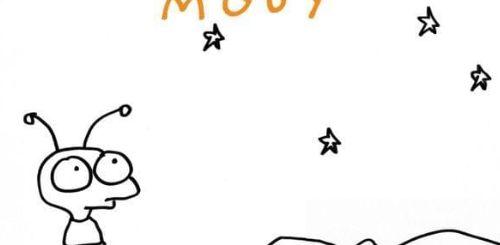Machete by Moby Lyrics Meaning – The Poignant Dissection of Desperation and Deliverance
Lyrics
Took the needles from my arms and put them to the sky
Watched the cold come take me pull me down like I did know
I saw it gone
Hold myself up til tomorrow holds me down again
Feel the darkness coming over see how it begins
Come with me into the willow garden out tonight
Feel the darkness come my moon will touch you with its light
Help me life was over love I want to had you in my sights
See and I was overlooked I had you in my hands
Like a lid of no survivors nothing I don’t mind
Help me broken baby help me break you with my mind.
With the slicing precision of its namesake, Moby’s ‘Machete’ slashes through the veneer of surface-level interpretation, revealing a deep cut into the psyche of a troubled narrator. The song, a track from Moby’s 1999 album ‘Play’, wields its haunting melody and chilling lyrics to carve a narrative riddled with struggle, longing, and a stark confrontation with one’s demons.
As we approach the lyrics penned by Moby, it becomes evident that this is not just a song. It’s a confessional, a poetical exploration grounded in contrasts of darkness and light, addiction and redemption. The sparse yet potent verses are Moby’s canvas, illustrating the visceral world of the narrator’s inner tumult.
The Siren’s Call of the Abyss
Yesterday I felt so cold, I felt like I could die’ opens ‘Machete’ with an alarming familiarity to despair that chills to the bone. Our protagonist is caught in a relentless grip of apathy, the consequence of which is not just a poetic conceit but a brutal reality for many. The ‘needles from my arms’ line isn’t simply metaphorical; it’s a painful admission of substance abuse, and the skyward gesture that follows speaks to a last-ditch plea for salvation or a surrender to fate.
Moby’s apt usage of chilling weather imagery to describe the clutches of addiction (‘Watched the cold come take me’) or mental health struggles is no mere coincidence. It’s a somber reflection of how such afflictions can render one’s state of being into a frigid wasteland, a place where hope is more a memory than a promise.
Breaking Free or Waving the White Flag?
In the evocative line ‘Hold myself up til tomorrow holds me down again’, Moby captures the cyclical nature of suffering. The temporary respite from personal demons, found in daily survival, is transient. Each day is a battle won, only to concede to the prospect of tomorrow’s defeat. This poignant play between personal strength and the overwhelming weight of reality creates a stirring resonance with anyone fighting their nightly shadows.
This internal tussle sketches out the common human narrative of yearning for control in a life that feels governed by forces beyond one’s grasp. The dichotomy between holding oneself up and being held down by existential dread is a tale as old as time, yet Moby presents it with a freshness that stirs the listener’s soul.
A Dance with Darkness in a ‘Willow Garden’
The invitation ‘Come with me into the willow garden out tonight’ envelops us in a conflicting sense of serenity and sorrow. The willow garden, traditionally symbolic of mourning, here mirrors the internal world of the song’s subject. Moby ingeniously intertwines the notion of nature’s comfort with the sorrowful acceptance of one’s battle scars.
The garden becomes a sanctuary, a place away from the world’s chaos and yet intrinsically connected to the pain that precipitated the need for such a refuge. The darkness that our protagonist mentions does not only descend upon them but is also called upon—suggesting a duel with the darkness, an embrace of the inevitable, and perhaps even finding solace within it.
The Lyrical Poignancy of Desperation’s Grip
‘Help me life was over love I want to had you in my sights’, these words are not only a cry for help but are imbued with the regret of past desires unfulfilled. It is here that Moby’s lyrical prowess shines, encapsulating the essence of human longing—the blinding focus on that which is wanted, so much so that life without it seems to end.
‘I had you in my hands’—is it a statement of possession or one of loss? The line blurs between having attained something dear and having let it slip away. This interplay of memory, loss, and the clinging to shreds of hope, shapes the intimacy with which the listener relates to the song.
The Cryptic Identity of ‘No Survivors’
Concluding the emotional ordeal, Moby brings forth the notion of ‘no survivors’. But who are these survivors? Are they mere fragments of the self, shattered by adversity, or are they the narrator’s once vibrant dreams now crippled by affliction? This reference adds a layer of depth and darkness, compelling the audience to ponder the collateral damage of internal wars.
‘Help me broken baby help me break you with my mind’—could these be the muddled thoughts of the desperate, or perhaps a convoluted inner desire to master one’s own suffering, even if it means fracturing the self further? With machete-like sharpness, Moby leaves us with an open wound of thought, ready to be explored and interpreted, yet never fully healed.








